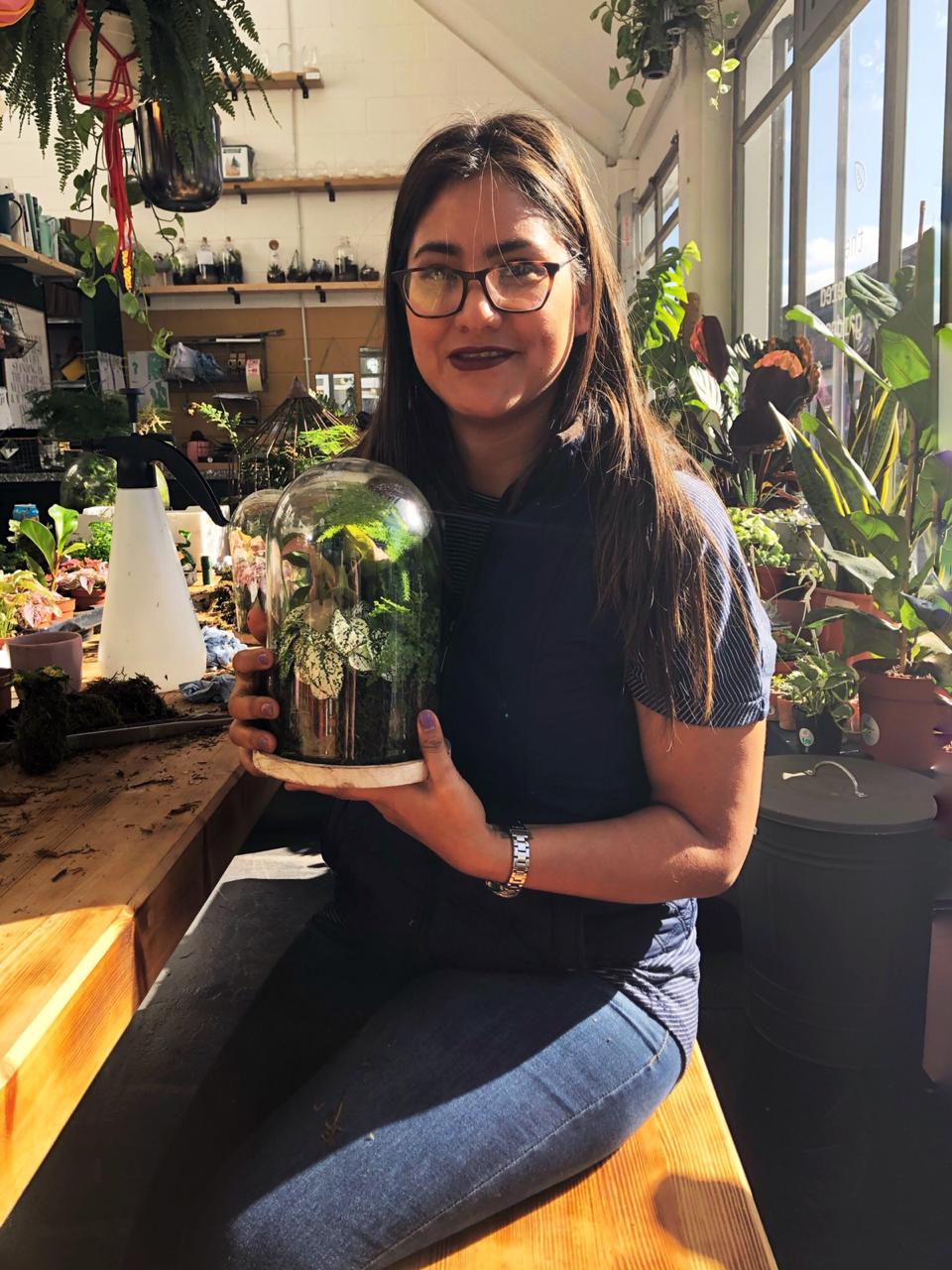
April 17, 2019, by Lexi Earl
Future Food Beacon Collaborators: Tatiana Chavez
Tatiana Chavez was a visiting researcher in the Future Food Beacon in February and March of this year. She is from Ecuador. She works in the Biotechnology Research Center of Ecuador (CIBE), in the Molecular Biology laboratory. She currently researches the analysis of the expression of genes related to plant-pathogen and plant-biofertilizer interactions.
In this interview, Tatiana talks to Lexi Earl about her research, and her experiences at UoN.
Can you tell me about your work and how you became involved in research?
I’ve been working in this field for almost eight years. During my Bachelor’s degree (Biology), I started working on diseases associated with bananas. My research was focused especially on the interaction between banana and the fungus Pseudocercospora fijiensis. I’ve been working on that until now. Lately, I’ve been studying how a bio-fertilizer could control the pathogen infection (P. fijiensis), but would also fertilize the plant as an organic alternative; assuming that bio-fertilizer provides better growing conditions and may enhance self-defence in the plant. My research has always been focused in molecular biology and genetic engineering in plants, mainly with banana but also cocoa and coffee. I’ve started to work in cacao, focusing on cadmium absorption. The physiological differences between cacao and banana have been the trickiest part for me to understand, but in the biological sense they are very similar. I am researching the genes related to heavy metal transporter pathways and how these are related – the interaction between what is happening outside and inside the plant.
How did you become interested in this topic?
I started working with viruses, particularly human viruses like influenza, but always from the molecular biology perspective, because that really fascinated me. I was focused on viruses in the beginning of my career because they are interesting. Then I had an opportunity to change the research to some viruses in plants. Later, I had the chance to work on fungus and plants, in order to learn about genetics, which was also motivating, so I switched to focusing on plants and fell in love with that. I first thought it would just be for my Bachelor’s degree but I learnt a lot.
Cocoa is one of the most important crops in Ecuador, not only because of the quality of chocolate that we can produce, but because of the history and heritage of the cocoa tree to the Ecuadorians. In fact, plants are an important part of my life! My hobby is working with plants, reproducing them in my home. I have a huge space at home dedicated to reproducing ornamental plants and making plant arrangements. I have lots of plants at home!

How did you come to join us at the Future Food Beacon?
A soil science professor, Eduardo Chavez, in Ecuador started working on the levels of cadmium in the soil, and the absorption of that element in cacao. He asked me and Professor Eduardo Sanchez (who I work with in the Molecular Laboratory in Ecuador), what we might do on a molecular level and we matched our ideas and knowledge, but at that moment it was impossible to get started. Later, he met Prof David Salt at a meeting in Peru, and they were talking about the possibilities for research in cacao and cadmium absorption with more clear ideas of what we can develop in this research as a team. So Prof Chavez introduced us (me and Prof Sanchez) to Prof Salt and we discussed the possibilities of a fellowship here and the scope of the research. I am here for two months, working on the issue of cadmium uptake in cacao.
How did you become interested in science and molecular biology?
I was really interested in the environment, contamination, and how we can decrease pollution when I started my biology career. But at university I had some subjects in molecular biology. I took on a fellowship to get experience in the lab, so it would be easier to understand the subject in the classroom. I really enjoyed the lab and got attached to the subject.
How has it been so far at the University of Nottingham?
It has been truly different. I did a fellowship in the US and it is even quite different from that. There are a lot of protocols and procedures just to get into the lab. We have weekly meetings and those have been a great experience. We share our progress and talk about what we can do to increase our progress for the next lab meeting. For me, that really helps my research move forward.
How do you think the research you do affects ordinary people?
The research I am doing now on cacao is hugely important – both for ordinary people who consume chocolate and for the farmers. The farmers need this research in order to export their cacao beans to Europe. Europe is the main consumer of cocoa beans in the world. There is a time importance to this research too. It is really important both economically for the growers, and for the health of consumers.
Do you have any advice for young scientists?
Don’t be too hard on yourself, and what you want in the future. Every opportunity that you can take, take it. You can always end up on the path you want, even if you take a winding way to get there.

What are your plans for the future?
I would like to do my PhD. I hope to find funding to do so. I’d love to work on something that I could say I made a difference. I’d like to be a role model for young scientists and scientific woman in this field as well, especially since I come from a developing country.
No comments yet, fill out a comment to be the first

Leave a Reply